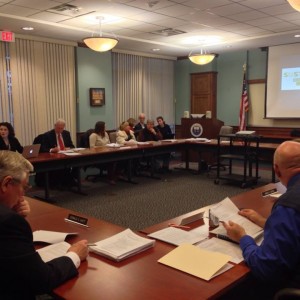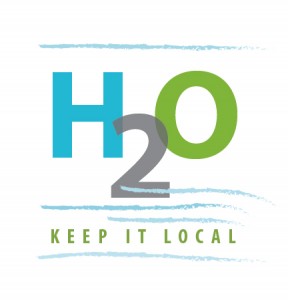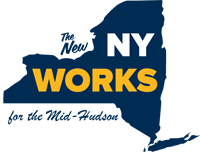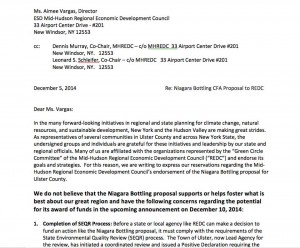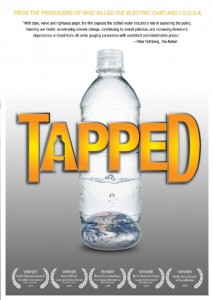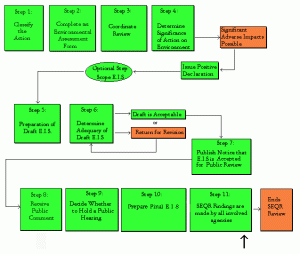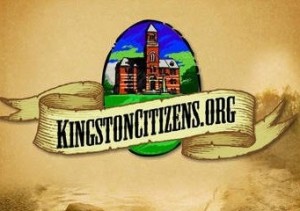December 16, 2014
By Jennifer Schwartz Berky
To the SUNY Ulster Board of Trustees,
I am here with KingstonCitizens.org, an organization that now has over a thousand supporters and approximately 25 professionals in a region-wide coalition engaged in our work. (See Introduction to KC.org). We have been working since 2005 to increase transparency and civic engagement in Kingston, New York through public interest research, educational forums, and working in a non-partisan manner with our elected officials to support open government.
I am an urban planner with many years of experience in economic development and environmental conservation research, policy, and development work. As the Policy and Planning Advisor to Kingston Citizens and a trustee on local, regional and state boards, I am committed to providing well-documented information regarding discussions of public concern.
Your packets contain articles and references to support the statements I am making here today, so that you may evaluate and further discuss the points in this presentation. I and the members of our team are available for further discussion on this issue and welcome your questions.
Kingston Citizens has taken on the issue of the Niagara Bottling proposal because of an unprecedented outcry by residents in Kingston and surrounding communities that will be affected by this proposal. Hundreds of people have attended meetings in Kingston’s City Hall, scores have attended the Town of Ulster’s meetings, and 1,587 signed a petition within a 5-day period objecting to the State’s potential funding of Niagara’s 10.8 million-dollar grant proposal last week.
I have outlined 10 reasons why our organization and our many supporters are asking you not to enter into a partnership with the Niagara Bottling Company as part of the Start Up New York program. In your packets are the key references in this outline. A full folder of the resources we cite is being shared with Ms. Zell and Mr. Katt for your further analysis.
1. Alignment with the College Mission
The Niagara Bottling Company is not an appropriate fit for the SUNY Ulster mission: “SUNY Ulster is a vibrant community of learners distinguished by academic excellence, collaboration, innovation, service, and responsible use of resources.”
With what we present next, we ask you to fully consider whether the Niagara Bottling plant and your Start Up New York proposal are aligned with your mission. Furthermore, this is not an industry that links to SUNY’s educational mission articulated in The Power of SUNY, including 21st century, sustainability-oriented and environmentally-conscious education and job opportunities.
2. Student Goals for Academic Excellence
Students in the United States are increasingly aware of the importance of sustainability in social, environmental and economic terms. The Princeton Review recently reported that over 25% of applicants said that commitment to the environment would “very much” impact their decision on a college or university. The SUNY Ulster students must learn to compete in a global marketplace and, as they have said in their own words, “SUNY Ulster’s interactions with the Start-Up NY program, it has the capability to aid in the introduction of sustainable jobs and companies, as well as the potential to introduce unsustainable or environmentally harmful companies to the local area.” They are asking you to work with the former. They want to learn from socially-responsible companies. I hope you want this for them, too.
3. Transparency
The public became aware of the Niagara Bottling proposal several months after it went through several steps that would normally require public disclosure. Chief among these is the provision of water through the Kingston Water Department, whose “will serve” letter was issued, but not made publicly available until FOILed by KingstonCitizens.org, despite a potential lack of capacity and a known construction and maintenance decision that would require the assent of the Kingston Common Council, according to our City Charter.
When asked by the SUNY Environmental Club whether the students would have any input into Niagara’s proposed Start Up New York venture with the college, the president told the students that they could not participate in the college’s development of the Start Up New York plan.
4. Known Dangers of the Water Bottling Industry
The water bottling industry has become one of the world’s most wasteful industries. In 2007, when the last federal industrial energy data were published, the industry utilized 32 to 54 million barrels of oil, which is a third of a per cent of total US primary energy consumption. The Pacific Institute estimates that the total amount of energy embedded in our use of bottled water can be as high as the equivalent of filling a plastic bottle one quarter full with oil. Consumption of bottled water has grown 10 percent each year since these data were published. The bottling industry has managed to convince the public that bottled water is safer to drink than tap water. In truth, the industry is hardly regulated at all, with regular reports of contamination in the products. By comparison, municipal water supplies are tested at least hundreds of times per month and have a better safety record than bottled water.
5. Comparison of Costs vs. Benefits
The $10.8 million Regional Economic Development grant proposal, if awarded, would have provided Niagara with $90,000 per job created for 120 jobs and $270,000 per job for 40 jobs. Because the public has not been provided any information regarding the amounts associated with the tax incentives associated with Start Up New York, we are concerned that these are commensurately high in relation to the jobs created. The concept of “opportunity cost” must be considered here. According to the Start Up New York program regulations, here is a 200,000 square foot ceiling on the incentive award. Has the Board of Trustees evaluated other options? Have you considered what this may prevent our community from doing in the future?
6. Economic Analysis
According the country’s leading economists in regional economic development and regional migration studies, “large incentive packages even when they are risky, unnecessary, damaging to the fiscal future of the locality, displacing, or place extraordinary burdens on constituents to fund future services (Markusen and Nesse 2007). “Companies that least need incentives have the resources to most effectively engage in opportunistic behavior. They cite documented cases where, after large incentives packages had been granted on the presumption of competition, corporate executives admitted that other sites were never seriously considered.” Timothy Bartik and other economists doing labor migration studies, have found that “a sudden increase in jobs as a result of a new plant or plant expansion—indicates that for every 100 new jobs in a region, about 7 will be filled from the ranks of the unemployed, about 16 by drawing existing residents into the labor force, and the remaining 77 from in-migration (Fisher 2004).” That study evaluated numerous cases of tax incentives in different regions, and noted that for “a fairly typical incentive package amounting to a 30% cut in taxes, only 9% of the new jobs arriving in a community will be attributable to the tax cut. The incentives provided to the other 91% are a pure waste of money.”
The leading scholar in this field, Timothy Bartik, has said that only 10 – 40% of jobs in these new industries go to area residents. He is with one of the country’s leading think tanks on labor studies, the Upjohn Institute in Michigan. His work is the basis for my statement that fewer than half the jobs to area residents. A literature review by economists Partridge and Betz from Ohio State University, who cite Partridge and Rickman (2006), Rowthhorn and Glyn (2006), and others, find that “in the long-term (about 7 years), approximately 80% of the new jobs go to migrants, leaving 20% of the jobs to original residents, with a larger share going to original residents in the short-term.“
These economists also find that economic policies such as those being used to justify support for the Niagara Bottling plant “are really aimed to help politicians not residents, these policies slow needed adjustment mechanisms from poor to prosperous regions, and any benefits are dispersed to those who are already economically well off.” The authors conclude that “economists are often highly critical of these policies because they focus on the place and not on the “people”. Economists also suggest such policies may slow the regional adjustment process and that the winners may be wealthy business owners or landowners—not the intended low-income residents (Glaeser, 2008; Pettus, 2006; Polese and Shearmur, 2006; Vigdor, 2007; World Bank, 2009).”
7. State Environmental Law
State agencies are specifically prohibited from funding an action until it has complied with the provisions of a State Environmental Quality Review (SEQR) (see section 617.5). Before considering the Niagara Bottling proposal for a Start Up New York tax abatements, we urge SUNY Ulster to allow the full environmental review process to occur so that all its related impacts can be evaluated, including the construction and operation of the plant, the sale of the water, the implications for Kingston’s overall water supply, the infrastructure required for withdrawals, and the potential impacts to the water bodies from which Kingston draws its water supplies.
8. Niagara Bottling Company’s Track Record
- The Niagara Bottling Company was found to have violated environmental regulations in California and Arizona.
- Niagara Bottling sued the City of Groveland, Florida – with a population of just over 7,000 residents — which had to spend more than $1.4 million in its battle with Niagara and had to settle for $1.24 million credit toward sewer-utility payments and pay some other costs for the company. Niagara can use as much as 200,000 gallons a day in sewer service from Groveland for as long as seven years without being charged, which is among the most expensive of municipal services in any community.
- Niagara employees, current and past, in plants across the country, have logged dozens of complaints about the company’s lack of training, safety procedures, criteria for performance its high turnover, forced overtime, and corporate culture of favoritism. If this were one plant, or just a few employees, we would not share these with you, but these reports came from several locations.
- Industry reports show that – among the 90+ job categories at Niagara – many of the jobs, particularly in labor (not management) lower-paid than other employers in this industry. We are providing these for you in the digital file to Ms. Zell.
- TheBureau of Labor Statistics (BLS is my source for the claim of lower pay and injury/illness at bottling plants. They issued several reports on this problem. Your packet has a page from a BLS report on this.
9. Your Role as Trustees
According to SUNY’s “Statement on the Governance Role of a Trustee or Board Member,” trustees or board members:
“…must act in good faith and exercise the degree of diligence, care, and skill that an ordinary prudent individual would use under similar circumstances in a like position. To conform with this standard, trustees and board members should:
- Regularly attend and participate in board meetings and committee meetings where applicable;
- Read, review, and inquire about materials that involve the institution, especially board minutes, annual reports, other reports, plans, policies, and any literature that involves the institution;
- Have a fiduciary responsibility for the assets, finances, and investments of the institution and exercise due diligence, care, and caution as if handling one’s own personal finances; and
- Use one’s own judgment in analyzing matters that have an impact on the institution.”
Among these fiduciary responsibilities, “When matters of fiscal governance become very technical and require greater expertise in assessing the fiscal condition of the institution or its long-term well-being, a board should seek the advice of experts.” Examples of this include:
- Assessing any risk associated with the validity and reliability of financial data; and
- Monitoring compliance with laws and regulations applicable to the institution’s operations.
10. Leadership
Today, your students are asking you to make a commitment to exert leadership in your decisions regarding your relationship to Niagara Bottling. In order for Ulster County to give its students the tools to compete in our global market, they need to learn not only skills or to be trained in specific tasks. They need role models whose decisions reflect a respect for the public good and for the protection of our public resources. They deserve to see our leaders hold themselves to the highest standards and show that they are striving for the best opportunities they can secure for them.
Surely we can do better than this. We can evaluate proposals with a more inclusive process, one that is based in science and economics, and we can show our community that we want to fulfill a mission of academic excellence, collaboration, innovation, service, and responsible use of resources.”
Again, we are at your disposal to discuss this further. Thank you for your time and consideration.
Specific References
Bartik, T. J. (2012), The Future of State and Local Economic Development Policy: What Research Is Needed. Growth and Change, 43: 545–562. doi: 10.1111/j.14682257.2012.00597.
Fisher, Peter. 2004. “The Fiscal Consequences of Competition for Capital.” Prepared for the Conference “Reining in the Competition for Capital” Humphrey Institute of Public Affairs University of Minnesota February 27-28, 2004
Glaeser, Edward L. and Joshua D. Gottlieb. 2008. “The Economics of Place-Making Policies.” Brookings Papers on Economic Activity:155-239.
Gleick, P.H. and H S Cooley, “Energy implications of bottled water” Environmental Research Letters Volume 4 Number 1
Markusen, Ann, and Katherine Nesse. 2007. “Institutional and Political Determinants of Incentive Competition.” In Reining in the Competition for Capital, Ann Markusen, ed. Kalamazoo, MI: W.E. Upjohn Institute for Employment Research, pp. 1-42. http://research.upjohn.org/up_bookchapters/237
Partridge, Mark D. and Dan S. Rickman. 2006. “An SVAR Model of Fluctuations in U.S. Migration Flows and State Labor Market Dynamics” Southern Economic Journal 72(4):958-980.
Pettus, Ashley. 2006. “Rethinking New Orleans.” Harvard Magazine, January/February, Available at: http://www.harvardmagazine.com/on-line/010673.html.
Polese, Mario and Richard Shearmur. 2006. “Why Some Regions Will Decline: A Canadian Case Study with Thoughts on Local Development Strategies.” Papers in Regional Science 85(1):23-46.
Renkow, Mitch. 2003. “Employment Growth, Worker Mobility, and Rural Economic Development.” American Journal of Agricultural Economics 85(2):503-513.
Rodriguez-Pose, Andres. 2010. “Economic Geographers and the Limelight: Institutions and Policy in the World Development Report 2009.” Economic Geography 86(4):361-370.
Rowthorn, Robert and Andrew J. Glyn. 2006. “Convergence and Stability in U.S. Employment Rates.” The B.E. Journal of Macroeconomics: Contributions in Macroeconomics 6(1).
World Bank. (2009) Reshaping economic geography. Washington, D.C.: World Bank.
General References on Sustainable Development
Anderson, Ray C. Confessions of a Radical Industrialist: Profits, People, and Purpose—Doing Business by Respecting the Earth. New York: St. Martin’s Press, 2009.
Bartlett, Peggy F. and Chase, Geoffrey W. (eds.). Sustainability on Campus. Cambridge: MIT Press, 2004.
Beavan, Colin. No Impact Man: The Adventures of a Guilty Liberal Who Attempts to Save the Planet, and the Discoveries He Makes About Himself and Our Way of Life in the Process. New York: Picador, 2010.
Benyus, Janine M. Biomimicry: Innovation Inspired by Nature. New York: William Morrow & Co., 1997.
Brown, Lester R. Plan B: Rescuing a Planet Under Stress and a Civilization in Trouble. New York City: W. W. Norton & Co., 2003.
Carson, Rachel. Silent Spring. Boston: Houghton Mifflin, 1962.
Cox, John D. Climate Crash: Abrupt Climate Change and What It Means for Our Future. Washington, D.C.: Joseph Henry Press, 2005.
Daly, Herman. Beyond Growth: The Economics of Sustainable Development. Boston: Beacon Press, 1996.
Farrell, James J. The Nature of College. Minneapolis: Milkweed Editions, 2010.
Friedman, Thomas L. Hot, Flat, and Crowded: Why We Need a Green Revolution—and How it Can Renew America. New York: Farrar, Straus and Giroux, 2008.
Green Building and LEED Core Concepts. Second Edition. usgbc.org/store.
Gore, Al. Our Choice: A Plan to Solve the Climate Crisis. New York: Simon & Schuster, 2009.
Hawken, Paul. Blessed Unrest. New York: Penguin, 2008.
Hawken, Paul. The Ecology of Commerce: A Declaration of Sustainability. New York: Harper Collins, 2010.
Katz, Greg. Greening Our Built World: Costs, Benefits and Strategies. Washington, D.C.: Island Press, 2010.
Martin, James and Samels, James E. (eds.). The Sustainable University: Green Goals and New Challenges for Higher Education Leaders. Baltimore: The Johns Hopkins University Press, 2012.
McDonough, William and Michael Braungart. Cradle to Cradle: Remaking the Way We Make Things. New York: North Point Press, 2002.
Meadows, Donnella. Limits to Growth. New York: Universe Books, 1972.
Orr, David W. Earth in Mind: On Education, Environment and the Human Prospect. Washington, DC: Island Press, 1994
Royte, Elizabeth. Garbage Land: On the Secret Trail of Trash. New York: Little, Brown, 2005.
Worldwatch Paper #170: Liquid Assets: The Critical Need to Safeguard Freshwater Ecosystems
July 2005
Sandra Postel
ISBN: 1-878071-76-9
78 pages
By taking advantage of the work that healthy watersheds and freshwater ecosystems perform naturally, cities and rural areas can purify drinking water, alleviate hunger, mitigate flood damages, and meet other societal goals at a fraction of the cost of conventional technological alternatives.
But because commercial markets rarely put a price on these “ecosystem services,” and because governments around the world are failing to protect them, they are being lost at a rapid rate. Global warming is the wild card that could further exacerbate the impacts of human activities on the natural systems that safeguard our water supply—impacts that include falling water tables, shrinking wetlands, vanishing species, and a decrease in both the quality and quantity of available freshwater.
“The biggest enemy is tap water,” said a Pepsi VP in 2000. “When we’re done, tap water will be relegated to irrigation and washing dishes,” said Susan D. Wellington of Quaker Oats, the maker of Gatorade. But its more than just words: Coca-Cola has been in the business of discouraging restaurants from serving tap water, and pushing “less water and more beverage choices.”
Read MORE

